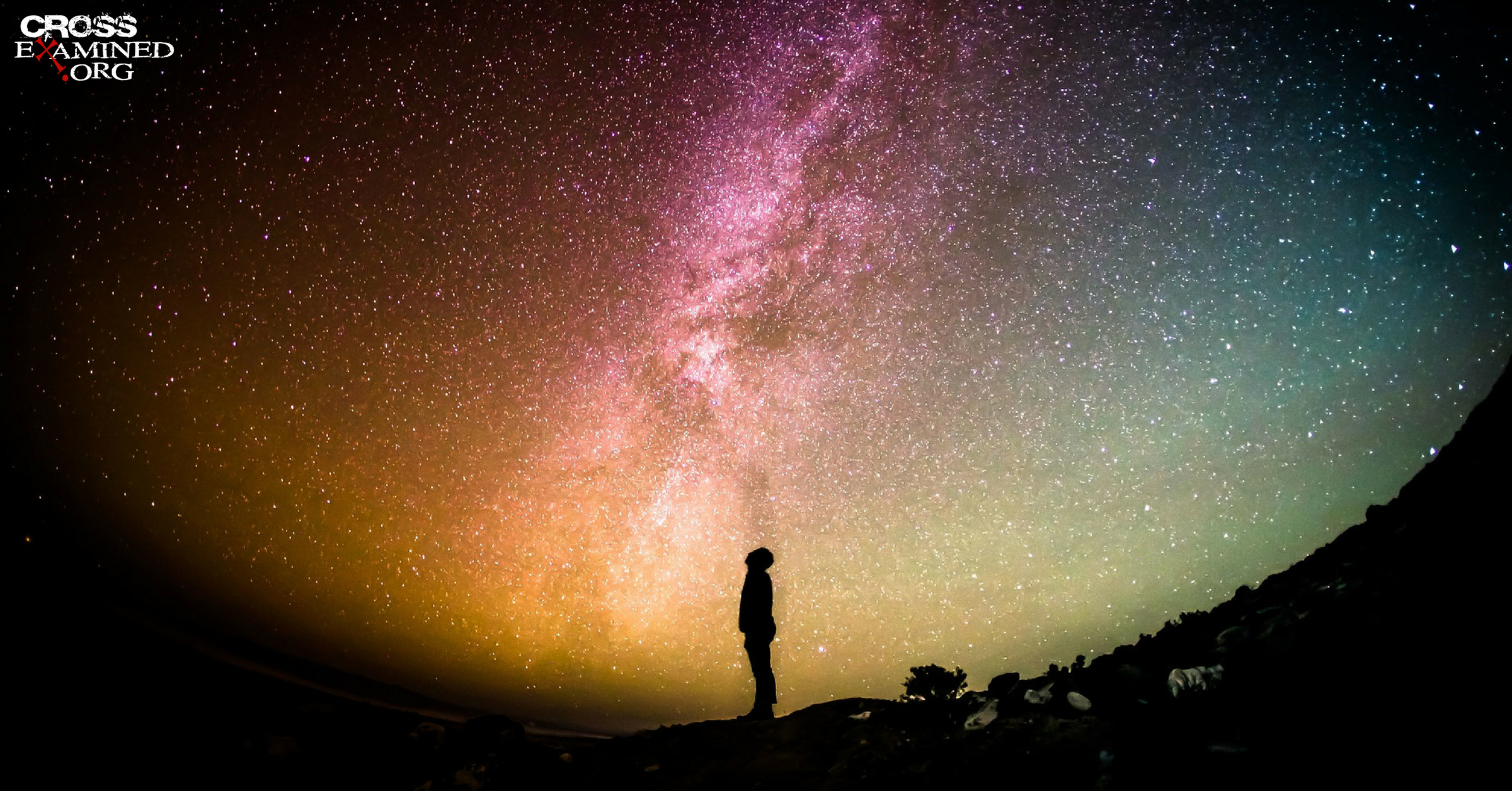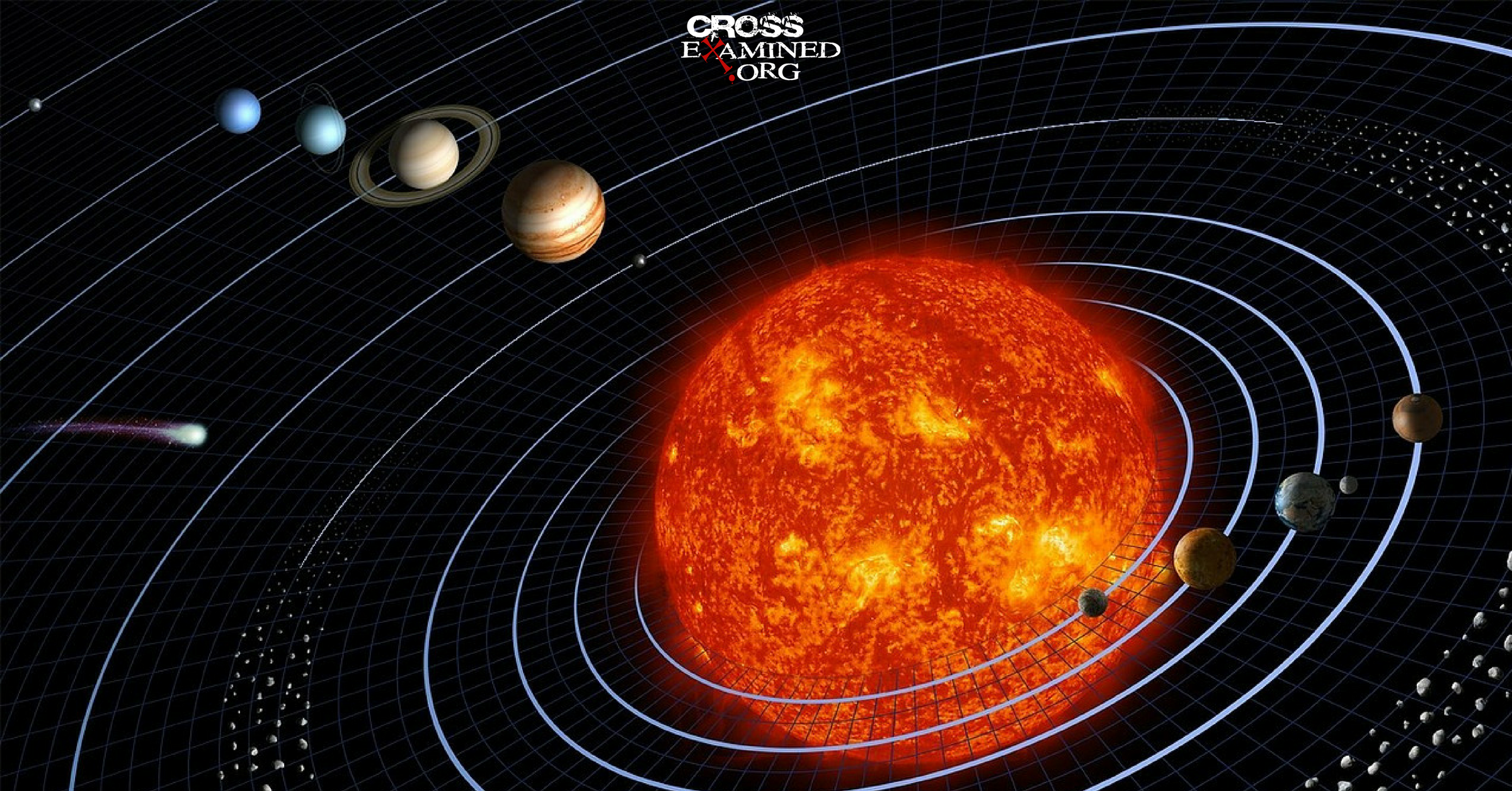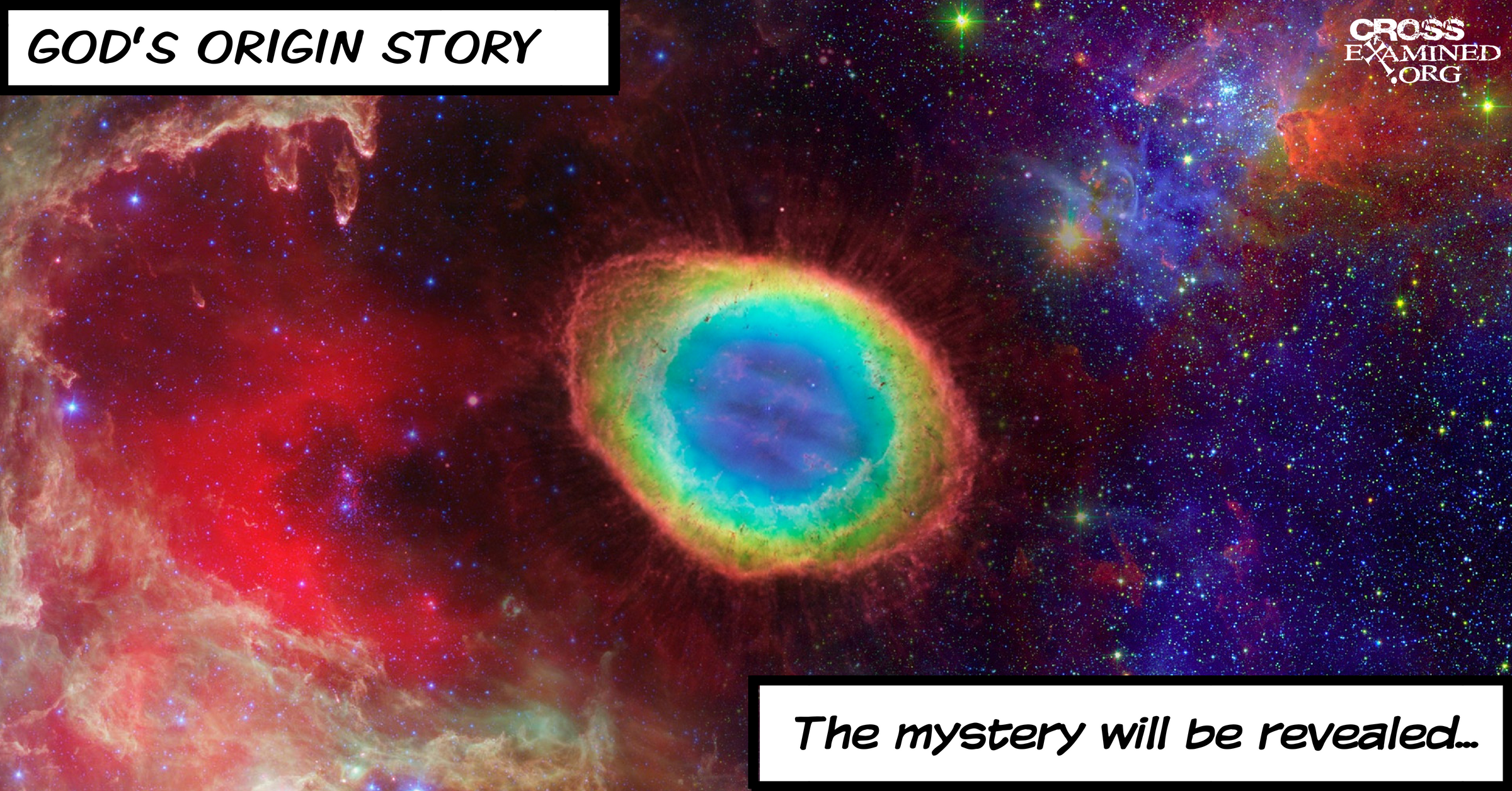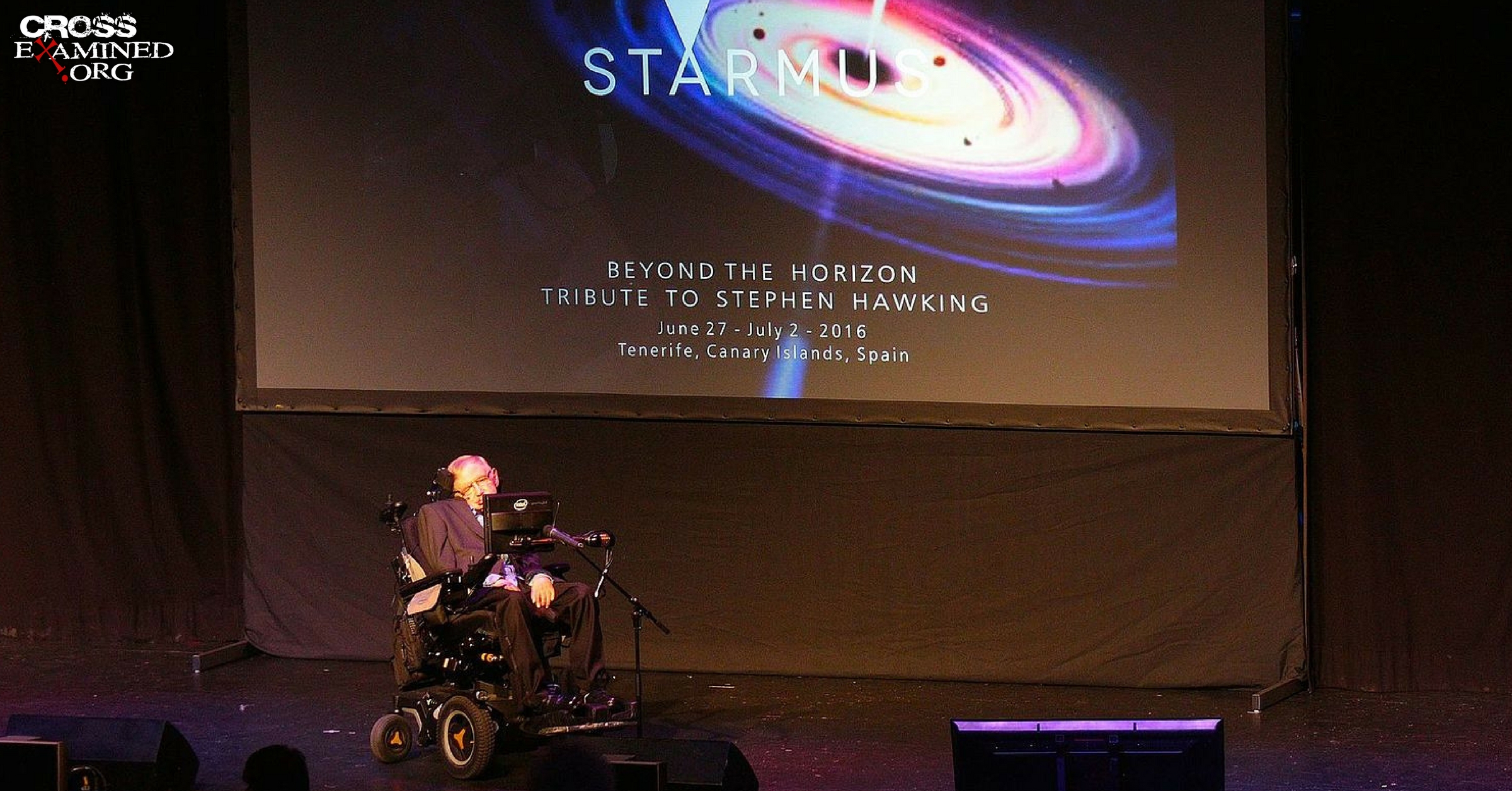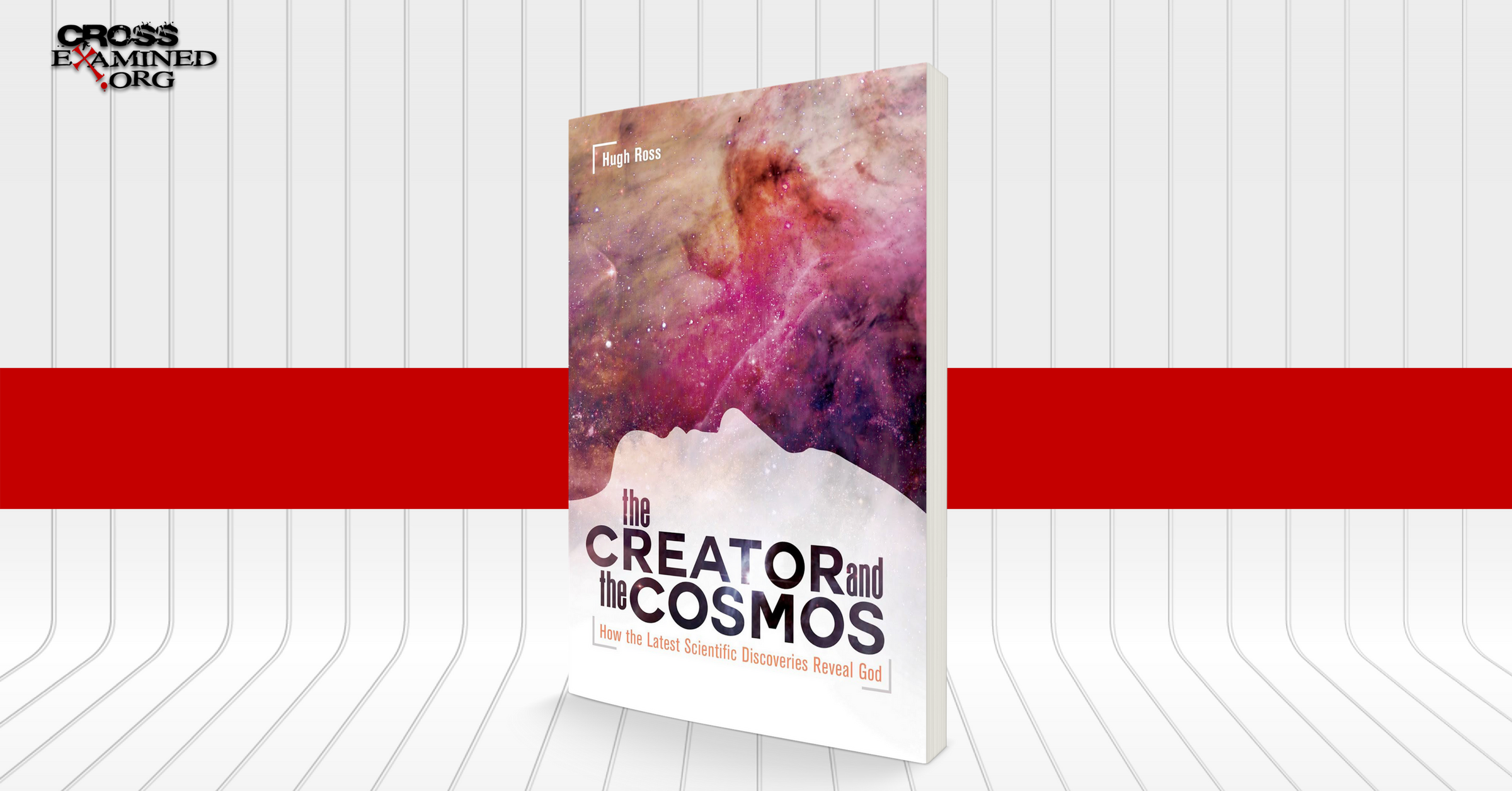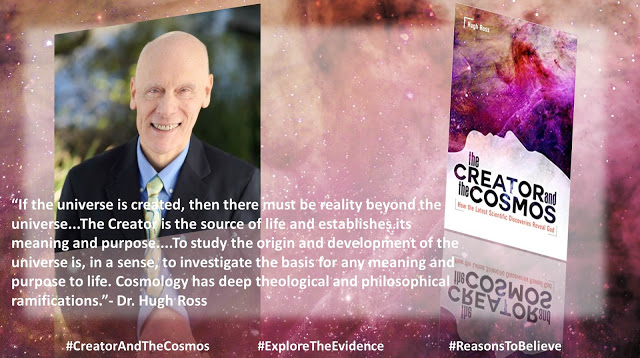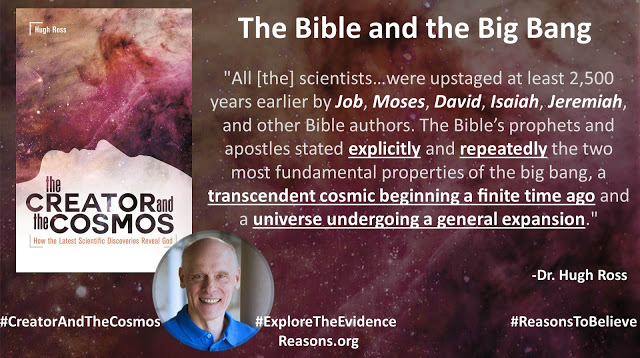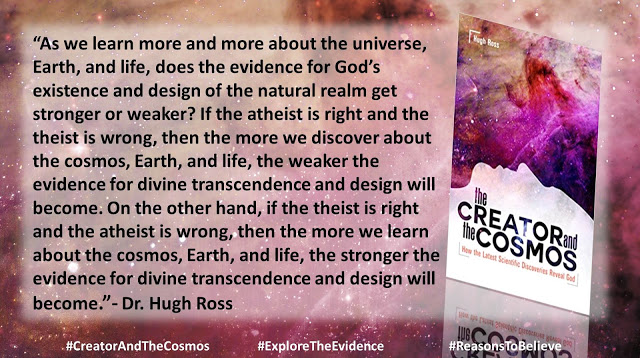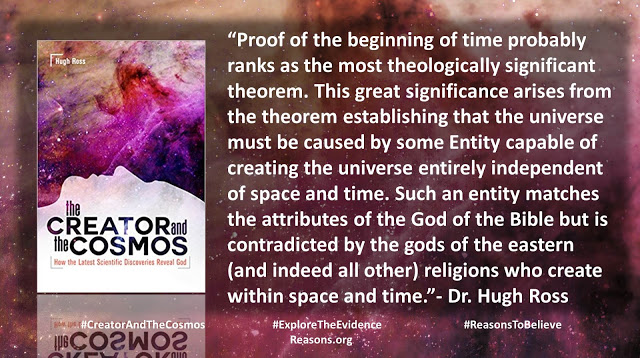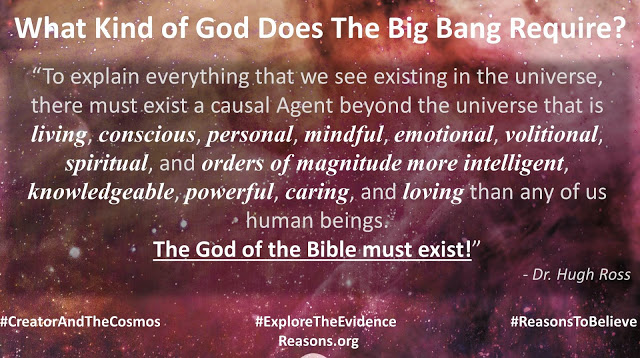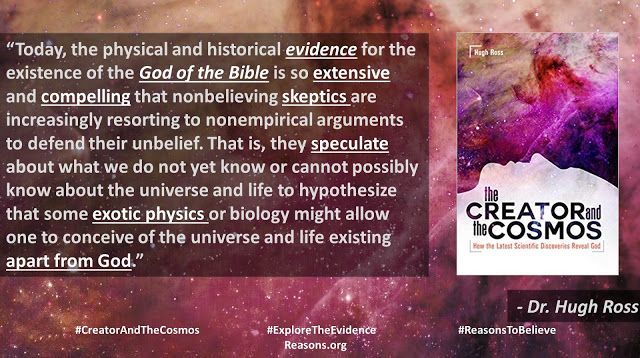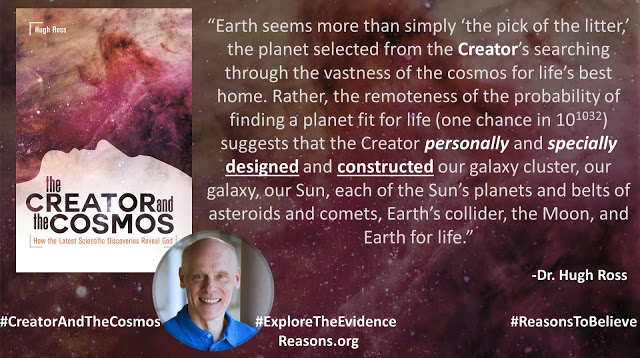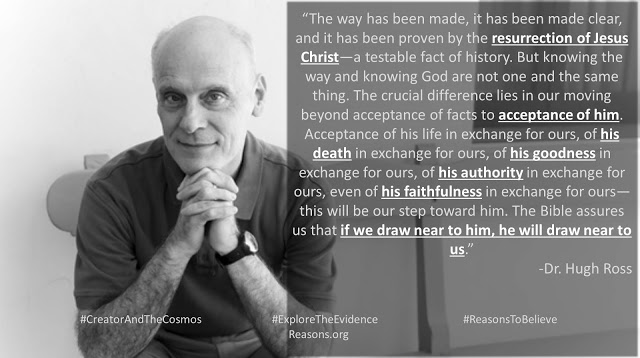“If you hate evil, hate sin.”
—Clay Jones—
Introduction
The so-called problem of evil is one of the most common objections raised against the Christian faith. Perhaps no one has more succinctly stated the apparent contradiction between an all-loving, all-powerful God and the existence of evil as the eighteenth-century Scottish skeptic David Hume:
Is he willing to prevent evil, but not able? Then he is impotent. Is he able, but not willing? Then he is malevolent. Is he both able and willing? Whence then is evil?[1]
More modern skeptics have posed the logical (or deductive) problem of evil this way:
- If God is all-good (omnibenevolent), He would prevent evil.
- If God is all-powerful (omnipotent), He could prevent evil.
- If God is all-knowing (omniscient), He knows how to prevent evil.
- But evil exists.
- Therefore, either God is not all-good, all-powerful, or all-knowing (or maybe He doesn’t exist!)
The existence of suffering and evil in the world has been an obstacle to faith for many, and for others, a source of constant doubt. When addressing the problem of evil from within the Christian worldview, I am convinced the following points must not only be taken into consideration but earnestly thought through and reflected upon until they become both intellectually and emotionally satisfying. When they are, I believe the problem of evil (POE) largely goes away.[2]
So why is the problem of evil a problem? Here are ten reasons:
#1 The POE is a problem because we fail to differentiate between the problems of evil and their respective solutions.
John Feinberg begins his book The Many Faces of Evil by laying out two very helpful and essential ground rules that must be understood by anyone attempting to discuss God and the problem of evil. These two ground rules are as follows: (1) there is no such thing as the problem of evil and (2) the problem of evil in its logical form is about the internal consistency of any given theological position.[3]
First, we need to realize that there are several problems of evil, not just one. The phrase “problem of evil” can be used to refer to a host of different dilemmas arising over the issue of God and evil. For example, someone who raises the problem of evil may be referring to the religious/emotional problem of evil, the logical problem of evil, the evidential problem of evil, moral evil, or natural evil, just to name a few. That there is not just one problem of evil necessitates that any discussion about God and evil must first begin by clarifying what problem is under discussion.[4] Each problem is separate and therefore may require its own solution. In addition, the skeptic cannot reject a defense for a particular problem of evil by arguing that it does not solve every problem of evil. No one defense addresses every problem of evil, nor was it intended to do so.
For example, an atheist may reject the free will defense because they don’t believe it adequately handles the problem of natural evil. But the free will defense is primarily used when addressing the problem of moral evil, not natural evil. Solving the problem of natural evil may require additional argumentation or an entirely different solution altogether. Either way, the atheist who reasons this way is simply mistaken. As Feinberg notes, “It is wrongheaded at a very fundamental level to think that because a given defense or theodicy doesn’t solve every problem of evil, it doesn’t solve any problem of evil.”[5]
Second, the problem of evil in its logical form is about the internal consistency of any given theological position. In other words, the critic is claiming there is a contradiction in the theist’s system and is therefore obligated to show a specific problem within the system they are attacking. Skeptics must be careful not to artificially generate an internal inconsistency within the theist’s system by attributing views of God, evil, freedom, love, omnipotence, justice, etc., to the theist which the theist himself doesn’t hold.
For example, an atheist cannot object to the free will defense on the grounds that God could create human beings with free will, and yet at the same time eliminate all moral evil, based on the atheist’s belief in view of free will known as compatibilism. If the theist incorporating the free will defense holds to libertarian free will, the atheist would be artificially (falsely) generating an internal inconsistency by importing his own definition of free will into the theist’s system. The atheist again is simply mistaken. If an internal inconsistency exists, it must be shown to exist within the theist’s system, not one imposed on him by the atheist. A critic may not like a particular defense or theodicy and may object to the system on external grounds, but this has nothing to do with whether the theist’s system suffers from an internal contradiction.
Finally, many of these supposed contradictions simply assume that God does not have a morally sufficient reason for allowing the evil He does. But this would be something the critic needs to justify. As long as the theist offers a possible explanation as to why God allows evil, the charge of contradiction becomes groundless. Of course, theists should certainly do their best to offer not just possible, but plausible solutions. In fact, there are already many theological systems that are able to solve their own logical problem of evil. These systems include theonomy, Leibnizian Rationalism, as well as those incorporating a free will defense.[6]
#2 The POE is a problem because we fail to examine it from a worldview perspective.
The problem of evil is not just a problem for Christians. It is a problem for everyone. I do not mean by this that every worldview needs to reconcile the existence of an all-loving, all-powerful God and evil. Rather, I mean that everyone, regardless of their worldview, must give an account for the existence of pain and suffering. This is not an attempt to dodge the objection. It is simply a point of the fact that each person should be able to give some explanation of pain and suffering from within their respective worldview.
Therefore, looking at the problem of evil from a worldview perspective we can frame the discussion by means of two questions:
- Which worldview best accounts for the origin and existence of evil?
- Which worldview offers the best solution to evil?
It is when we begin to compare and contrast Christianity with other belief systems in light of these questions that the superiority of the Christian worldview becomes evident.
For example, what can atheistic materialism say in response to the existence of pain and suffering? More specifically, can atheistic materialism offer a better account for the origin and existence of evil, as well as a solution, when compared with Christian theism? These questions seem to be relevant given that atheists and skeptics are those most often complaining about the POE.
Regarding the origin of evil, it seems all the atheist can say is “Evil just is.” Nature is red in tooth and claw. Evil is nothing but matter in motion, the same as goodness. Furthermore, how do objective moral values arise from matter, chance, and time? While Christians need to reconcile God and evil, the atheist must not only deal with their own problem of evil but also the problem of goodness, i.e., reconciling the existence of objective moral values with a materialistic universe. Richard Dawkins has stated,
In a universe of blind physical forces and genetic replication, some people are going to get hurt, other people are going to get lucky, and you won’t find any rhyme or reason in it, nor any justice. The universe we observe has precisely the properties we should expect if there is, at bottom, no design, no purpose, no evil and no good, nothing but blind pitiless indifference.[7]
If atheistic materialism is true, it seems all the atheist can say is that life is filled with gratuitous and unredeemable suffering…and then you die. There is no ultimate justice, let alone ultimate meaning, purpose, or value in life. But this can hardly be considered a solution of any sort. In terms of worldview thinking it is difficult to see how atheistic materialism can offer any consolation in the face of pain and suffering.
As another example, how do Eastern religions deal with pain and suffering? For Hindus evil is Maya, an illusion. Evil is not real. People suffer because of injustices performed in past lives (karmic debt). Therefore, suffering should not be alleviated since this would interfere with the karmic cycle and bring bad karma on the one attempting to aid the sufferer. This position prevents compassion and morally obligatory action in the face of horrendous evil. Furthermore, Hinduism and Buddhism, both advocates of karma and reincarnation, cannot make sense of these two doctrines within their respective religions and end up with logically incoherent systems:
For there to be reincarnated subjects of karma, there must be individual, personal selves that endure and continue as themselves from lifetime to lifetime. But Buddhism and Advaita Vedanta Hinduism do not affirm the existence of individual, personal selves. Therefore, these religions cannot logically support the existence of selves that endure from lifetime to lifetime or which are subjects of karma. Therefore, these Eastern religions cannot logically support reincarnation. If this argument succeeds, it not only demonstrates that they cannot solve the problem of evil, it further shows that both religions propose essential truth claims that contradict each other: (1) there is no self, and (2) reincarnation and karma. Thus, both religions fail the test of internal logical consistency and are necessarily false.[8]
What about Christianity? Christianity does not conclude that “evil just is” nor that evil is an illusion. As Augustine argued, evil can be explained in part as the deprivation (or privation) of good.[9] Evil is what ought not to be. Christian theism can account for both the origin and existence of evil since it teaches there is a part of reality which is non-physical. Furthermore, since evil is not some “thing” but rather the privation of good, God is not the direct creator of evil. Rather, evil came as a result of free beings using their free will badly. Christian philosophers and theologians throughout the centuries have offered numerous defenses in light of the problem of evil, arguing that God has morally sufficient reasons for allowing evil. Some of these defenses include the free will defense and the soul-building theodicy.
In short, an all-loving, all-powerful God can allow evil so long as He has a morally sufficient reason for doing so. While Christians may not be able to answer why God allows each and every particular instance of pain and suffering, there is no logical contradiction between the existence of evil and an all-loving, all-powerful God. Furthermore, the Christian message of God incarnates entering His creation and suffering in our place so we may have the hope of eternity makes these slight and momentary afflictions of no comparison to the eternal weight of glory that awaits us (2 Cor. 4:17). Those who reject God because of evil are rejecting the only One who can redeem evil and suffering for good. Randy Alcorn summarizes the Christian position this way:
The Bible never sugarcoats evil…The Christian worldview concerning this central problem is utterly unique. When compared to other belief systems, it is singularly profound, satisfying, and comforting….I’m convinced that Christianity’s explanation of why evil and suffering exist beats that of any worldview. Its explanation of why we can expect God to forever deliver His redeemed people from evil and suffering is better still. The answers revealed in Scripture not only account for how the world is, they offer the greatest hope for where the world is headed.[10]
#3 The POE is a problem because we forget that evil is evidence for the existence of God.
When you admit the existence of evil, i.e., things that are really wrong, you are acknowledging the existence of objective moral values. This seems to be problematic for both the atheist and the relativist considering the atheist cannot adequately ground objective morality, and the relativist assumes morality is relative.
The atheist or relativist may call upon the theist to give an account for the internal consistency of the theist’s worldview given the existence of both God and evil, but as soon as the atheist or relativist acknowledges that evil is real they have subsequently surrendered their worldview since they are assuming an objective standard of moral goodness. By “objective” I mean independent of what people think or perceive.[11] Complaining about evil assumes that evil is a real thing that it is objectively wrong; otherwise, we could simply dismiss the atheist or relativist by saying “that’s just evil for you.”
So where does this objective standard of morality come from? The only suitable grounding for objective morality is an objective moral law-giver: God. Ironically then, the existence of evil can be turned into an argument for the existence of God:
- If God does not exist, objective moral values do not exist.
- Evil exists.
- Therefore, objective moral values exist.
- Therefore, God exists.[12]
This argument is logically valid. The skeptic concedes premise two by raising the problem of evil in the first place, e.g., “Why does God let bad things happen?” Therefore, the argument hinges on premise one. However, in reflecting on premise one it seems clear that if there is no God, then there is no objective grounding for moral principles which apply to all people, in all places, at all times. Morality would be relegated to cultural conventions or individual ethical subjectivism. William Lane Craig sums it up this way:
Although at a superficial level suffering calls into question God’s existence, at a deeper level suffering actually proves God’s existence. For apart from God, suffering is not really bad. If the atheist believes that suffering is bad or ought not to be, then he’s making moral judgments that are possible only if God exists.[13]
In short, when the atheist or relativist raises qualms about God allowing evil he implicitly admits to an objective standard of morality which his own worldview cannot account for, but which the Christian worldview can. In other words, in order to complain about evil and raise the objection in the first place, atheists, skeptics, and relativists must borrow from Christian moral capital and the Christian worldview.
#4 The POE is a problem because we fail to take into account the full scope of evidence.
If evil, pain, and suffering were all there is, belief in the existence of an all-loving, all-powerful God might become rather absurd. Unfortunately, this is how the skeptic often paints the picture, emphasizing what seem to be gratuitous examples of suffering while at the same time either denying or ignoring the counterevidence against his position and in favor of God. Only examples of pain and suffering are offered as evidence against God, while any arguments or evidence for God are unfortunately left out.
Arguments which may be offered in favor of the existence of God include the cosmological, teleological, moral, transcendental, ontological, and, as mentioned above, even the argument from evil for the existence of God. Evidence which needs to be considered includes evidence for the beginning of the universe, the fine-tuning of the cosmos, the existence of objective moral values (again, including evil), the resurrection of Jesus Christ, the reliability of Scripture, so forth and so on. Regarding these considerations, William Lane Craig states,
The interesting question is whether God’s existence is probable relative to the full scope of evidence. I’m convinced that whatever improbability suffering may cast upon God’s existence, it’s outweighed by the arguments for the existence of God.[14]
In other words, if we have independent lines of evidence which point to the existence of an all-powerful, all-loving God, then we may be justified in believing in God even in the face of unexplained evil. We need to look at all the evidence, not evil in isolation. In his book Christian Apologetics: A Comprehensive Case for Biblical Faith, Douglas Groothuis places his chapter on the problem of evil near the end of the book for this very reason:
This chapter is placed near the end of the book because we should not take up the problem in a philosophical vacuum. We have contended that the case for Christian faith is multifaceted and cumulative. Christianity is rationally supported by a number of arguments. If so, then the biblical worldview cannot prima facie be refuted by one particular problem…We should consider all the arguments given thus far for the Christian worldview and against its competitors when considering the problem of evil…Therefore, the God-denier cannot declare victory over theism by merely stating the problem of evil.[15]
#5 The POE is a problem because we fail to understand our relationship to Adam.
If we want to know why there is so much pain and suffering in the world, we need to go back to the beginning and look at the first choice.[16] Most of the pain and suffering in the world can be attributed to free agents using their free will badly. This is exactly what Adam and Eve did and what we as their offspring continue to do. In short, our first parents willingly rebelled against God bringing corruption into the world and plunging all of mankind into a lifelong education of the knowledge of good and evil.
But how is it that wholly good beings, placed in a wholly good environment, in perfect relationship with God and one another, possessing wills inclined toward God, could turn against God? William Dembski offers this as a possible solution:
Precisely because a created will belongs to a creature, that creature, if sufficiently reflective, can reflect on its creaturehood and realize that it is not God. Creaturehood implies constraints to which the Creator is not subject… The question then naturally arises, Has God the Creator denied to the creature some freedom that might benefit it? Adam and Eve thought the answer to this was yes…As soon as the creature answers yes to this question, its will turns against God. Once that happens, the will becomes evil. Whereas previously evil was merely a possibility, now it has become a reality. In short, the problem of evil starts when creatures think God is evil for “cramping their style.” The impulse of our modern secular culture to cast off restraint wherever possible finds its root here…No longer able to trust God, humanity turned inward and sought fulfillment in its creaturehood rather than in the source of its being, the Creator.[17]
What were the consequences of this first sin? Not only was the marriage relationship damaged but the ground was cursed.[18] This raises the issue of natural evil. Much of the evil we see in the world including cancer, disease, sickness, pestilence, and death are explained as the result of sin entering the world. Natural evil then is the result of Adam and Eve exercising their free choice badly. Furthermore, sin also affected every aspect of their persons (mind, will, emotion, body), a concept known as total depravity. Mankind is now in bondage to sin and without hope apart from the grace of God.
But why do we suffer for the sin of Adam and Eve committed so long ago? This question fails to take into account that Adam and Eve are not some disconnected couple who lived long ago and have nothing to do with us. They were our first parents, they sinned, and they reproduced! The apostle Paul says in Romans 5:12, “Therefore, just as through one man sin entered into the world, and death through sin, and so death spread to all men because all sinned.”
One of the reasons we struggle with the doctrine of original sin is due to our strong sense of Western individuality. In reality, we are less individual than we think. Millard Erickson states,
…the entirety of our human nature, both physical and spiritual, material and immaterial, has been received from our parents and more distant ancestors by way of descent from the first pair of humans. On that basis, we were actually present within Adam, so that we all sinned in his act. There is no injustice, then, to our condemnation and death as a result of original sin.[19]
If this is true, everything that we are we received from Adam and Eve, including our soul and consciousness.[20] Once Adam and Eve became corrupt, all they could produce was corruption, i.e., they could not produce anything better than themselves. To say it again, they were our first parents, they sinned, and they reproduced. Each one of us is a little Adam or Eve. When we understand our relationship to Adam we learn several lessons regarding the problem of evil:
First, evil is the result of free beings using their free will badly.
Second, Adam and Eve plunged all of mankind into a lifelong education of the knowledge of good and evil. God is using evil and suffering to teach free creatures the horror of sin and the horror of rebellion against God. The lesson is this: if you hate evil, hate sin! William Dembski states,
We are the arsonists. We started the fire. God wants to rescue us…But to be rescued from a life of arson requires that we know how destructive arson is… If God always instantly put out the fires we start, we would never appreciate the damage fires can do. We started a fire in consenting to evil. God permits this fire to rage… so that we can rightly understand the human condition and thus come to our senses.[21]
Third, Adam’s seed always deserves to die unless it repents (Rom. 6:23). Jesus Himself takes it for granted that the wages of sin is death and that it is only God’s mercy that keeps us alive. To help emphasize this third point, let’s take a moment to look at Jesus’ own comments regarding the problem of evil.
Excursus: Jesus on the Problem of Evil
In Luke 13:1-5 we have Jesus’ clearest teaching on the problem of evil:[22]
Now there were some present at that time who told Jesus about the Galileans whose blood Pilate had mixed with their sacrifices. Jesus answered, “Do you think that these Galileans were worse sinners than all the other Galileans because they suffered this way? I tell you, no! But unless you repent, you too will all perish. Or those eighteen who died when the tower in Siloam fell on them—do you think they were more guilty than all the others living in Jerusalem? I tell you, no! But unless you repent, you too will all perish.
Not only is this Jesus’ clearest teaching on the problem of evil but we see Him addressing both moral and natural evil in His response. Notice that Jesus is first questioned regarding an example of what we would call moral evil: the murder of some Galileans by Pilate. In providing an answer, Jesus Himself introduces an example of natural evil: the falling of the tower of Siloam which killed eighteen.
How did Jesus answer the problem of evil presented to Him? Was Jesus taken back, struck by the profundity of such a pregnant question? His answer is short and to the point: “They weren’t worse sinners, they were just sinners. And unless you repent, you’ll die too.”
D.A. Carson in his book How Long, O Lord? Provides several important insights into this passage. It would behoove us as Christians to reflect deeply on these points.
First, Jesus takes it for granted that the wages of sin is death (Rom. 6:23):
Jesus does not assume that those who suffered under Pilate, or those who were killed in the collapse of the tower, did not deserve their fate. Indeed, the fact that he can tell those contemporaries that unless they repent, they too will perish shows that Jesus assumes that all death is in one way or another the result of sin, and therefore deserved.[23]
Second, because death is what we all deserve, it is only God’s mercy that keeps us alive:
Jesus does insist that death by such means is no evidence whatsoever that those who suffer in this way are any more wicked than those who escape such a fate. The assumption seems to be that all deserve to die. If some die under a barbarous governor, and others in a tragic accident, it is not more than they deserve. But that does not mean that others deserve any less. Rather, the implication is that it is only God’s mercy that has kept them alive. There is certainly no moral superiority on their part.[24]
Third, wars and natural disasters are always calls to repentance, and the fact that we question God’s goodness in times of calamity is a reflection of our own depravity and rebellion:
Jesus treats wars and natural disasters not as agenda items in a discussion of the mysterious ways of God, but as incentives to repentance. It is as if he is saying that God uses the disaster as a megaphone to call attention to our guilt and destination, to the imminence of his righteous judgment if he sees no repentance. This is an argument developed at great length in Amos 4. Disaster is a call to repentance. Jesus might have added (as he does elsewhere) that peace and tranquility, which we do not deserve, show us God’s goodness and forbearance.
It is a mark of our lostness that we invert these two. We think we deserve the times of blessing and prosperity, and that the times of war and disaster are not only unfair but come perilously close to calling into question God’s goodness or his power—even, perhaps, his very existence. Jesus simply did not see it that way.[25]
Dr. Clay Jones in his class on Why God Allows Evil entertainingly replays the dialogue from Luke 13 like this:[26]
Questioner: Jesus, we have the problem of evil here, the great problem of the ages. People are being killed Jesus. What have you got to say?
Jesus: They weren’t worse sinners, they were just sinners, and unless you repent you’ll die too. Next?
Questioner: Whoa! Jesus, hold on for a minute here! This is the PROBLEM OF EVIL! The question of the ages! Philosophers have debated this forever! People are dying here Jesus! What have you got to say???
Jesus: They weren’t worse sinners, they were just sinners, and unless you repent you’ll die too. Next?
Questioner: No, Jesus, don’t you get it?!? Let me put it to you this way. You see, if God were all-loving, He would want to prevent evil. If God were all-powerful, He could prevent evil…
Jesus: They weren’t worse sinners, they were just sinners, and unless you repent you’ll die too. Next?
That’s it ladies and gentleman, Jesus’ answer to the problem of evil. All fallen, unregenerate sinners born in Adam are corrupted to the core and deserve death. Whether we die by murder, accident, or disease isn’t anything more than we deserve. It is only by God’s grace that anyone is saved and it is only by God’s mercy that anyone is kept alive.
What implications does this have for Christian apologetics? At least three:
First, it means that Christian apologists need to take the consequences of sin and reality of human depravity seriously when addressing the problem of evil. Many Christians simply pay lip service to what the Bible has to say about these topics. It’s no wonder then we are often at a loss for words when someone asks, “Why do bad things happen to good people?” A completely biblical, though partial, rejoinder is this: no one is good but God alone! Bad things don’t happen to good people because no one is good. Jesus raised no qualms about our naturally born status as sinners before God, the universal corruption, and guilt of humankind, or our need for repentance. He introduced these very issues Himself in addressing the problem of evil. He took it for granted that the wages of sin is death. Christian apologists should do likewise.
Second, when addressing the problem of evil, Christian apologists need to present a theodicy which minimally includes the biblical teaching of original sin and human depravity. Why God allows evil won’t make sense unless we have the problem of sin clearly before us. J.I. Packer stated,
The subject of sin is vital knowledge… If you have not learned about sin, you cannot understand yourself, or your fellow-men, or the world you live in, or the Christian faith. And you will not be able to make head or tail of the Bible. For the Bible is an exposition of God’s answer to the problem of human sin and unless you have that problem clearly before you, you will keep missing the point of what it says.[27]
The same is true for the problem of evil. The subject of sin is essential because in raising the problem of evil, the skeptic must put forth an anthropodicy (justification of man) by arguing that man is “basically good” and God is unjust for allowing the suffering and evil He does. In response, the theist must show these assumptions to be false, and in their place put forth a theodicy (justification of God) which includes evidencing the depths of human depravity and arguing that God has morally sufficient reasons for allowing evil. Until we clearly articulate and defend the gravity of sin, as well as the universal corruption and guilt of humankind, many of our answers to the problem of evil will largely remain unpersuasive.[28]
Third, the present moral and natural evils we experience are appropriate segues into our need to practice and preach repentance in light of the final eschatological judgment. Those who experience such evils are not any more deserving. Rather, these disasters serve as warnings to all of us that final disaster awaits everyone who remains hardhearted and unrepentant:
So when disaster strikes, let us not wring our hands over the mysterious ways of God but encourage everyone to reflect on their sinful and doomed state in hopes that some will escape the Final Disaster that awaits the ultimately unrepentant.[29]
End of Excursus
Finally, no matter how many examples are presented to us of human suffering and evil, the major recourse is to point to human sinfulness:
Suffering and evil are the result of sin… To those who complain about evil and suffering, our reply should be: “Hate sin!” Our problem in understanding why humans suffer is that we diminish the significance and extent of human sinfulness.[30]
#6 The POE is a problem because we fail to grasp the depth of human depravity.
Human beings apart from the grace of God are capable of horrendous evils. A discussion of human depravity in relation to the problem of evil is absolutely necessary because the most frequently asked question concerning the POE is this: “Why do bad things happen to good people?” This is sometimes referred to as the emotional problem of evil.
A full treatment of human depravity simply isn’t possible here. Dr. Clay Jones of Biola University is well-read in this area and has done excellent work, especially relating human depravity to the problem of evil. His work is highly recommended and so I refer you to these articles and encourage you not to proceed on this topic without reading them first:
Human Evil and Suffering
We Don’t Hate Sin So We Don’t Understand What Happened to the Canaanites
To put it succinctly, the question “Why do bad things happen to good people?” is based on the false assumption that people are “good.” Given the reality of human depravity, the problem with this question should become immediately apparent. Man is not innately good:
The terrible human evils in the world are the testimony to man’s depravity in his state of spiritual alienation from God. The Christian isn’t surprised at the moral evil in the world; on the contrary, he expects it. The Scriptures indicate that God has given mankind up to the sin it has freely chosen; He doesn’t interfere to stop it but lets human depravity run its course (Rom. 1:24, 26, 28). This only serves to heighten mankind’s moral responsibility before God, as well as our wickedness and our need for forgiveness and moral cleansing.[31]
So the question is not “Why do bad things happen to good people?” but rather “Why do bad things happen to bad people?” But nobody ever asks that question. Perhaps the question we should be asking is this: “Why do good things happen to bad people?” Why has God out of His mercy chosen to dispense any goodness at all on rebellious sinners?
Skeptics, however, are often inconsistent when it comes to the nature of man and the problem of evil. They want to hold to the basic “goodness” of man and at the same time complain about the evil, pain, and suffering which man perpetuates, all the while blaming God for allowing it:
On the one hand, skeptics argue that bad things shouldn’t happen to good people and that the human race consists mainly of good people. On the other hand, their very objections concern the bad things people do to one another: murder, war, rape, child abuse, brutality, kidnapping, bullying, ridiculing, shaming, corporate greed, unwillingness to share wealth or to care for the environment…Since the same human race that commits these evils also suffers from them—since we are not only victims but perpetrators, of sin—what would God’s critics have Him do?[32]
How does a knowledge and understanding of the depths of human evil help us, especially in relation to the problem of evil? In addition to largely answering the emotional problem of evil as discussed above, the following points prove insightful:[33]
First, it demonstrates God’s patience and justifies God’s judgment. If you think that people are basically good, you will often be tempted to ask, “Why is God angry all the time?” when reading passages in Scripture concerning God’s judgment (e.g., the flood, destruction of the Canaanites, etc.). When you begin to fully grasp the depth of human depravity, sinfulness, and corruption, you instead will say, “Wow, God is really patient. Why isn’t He judging people sooner?” C.S. Lewis stated, “When we merely say that we are bad, the ‘wrath’ of God seems a barbarous doctrine; as soon as we perceive our badness, it appears inevitable, a mere corollary from God’s goodness.”[34]
Second, it magnifies the significance of Christ’s sacrifice. Jesus didn’t suffer a brutal, agonizing, torturous death on the cross because you’re basically a good person.
Third, it impassions are a witness. If you think that people are basically good, it will be hard for you to tell them they are corrupt sinners in need of salvation.
Fourth, it increases our desire for the Jesus’ return. When we watch television and see examples of some of the horrendous evil and suffering that takes place around the world, we often cry out, “Come quickly, Lord Jesus.”
Fifth, it reveals the greatness of our salvation. After all, if you think that you are basically a good person, your salvation doesn’t seem so grand:
We must contemplate men in sin, until we are horrified, until we alarmed, until we are desperate about them, until we pray for them, until having realized the marvel of our own deliverance from that terrible state, we are lost in a sense of wonder, love, and praise.[35]
Finally, it reveals we have gotten the problem of evil exactly backward:
There is a problem of evil alright. But it isn’t God’s problem—He is only good and doesn’t do any evil. It’s humankind’s problem because we are the ones who do evil. As C. S. Lewis put it, “The Christian answer—that we have used our free will to become very bad—is so well known that it hardly needs to be stated. But to bring this doctrine into real life in the minds of modern men, and even modern Christians is very hard.” Indeed. And a Christian won’t understand why God allows evil unless he or she thinks these things through.[36]
#7 The POE is a problem because we assume God does not have morally sufficient reasons for allowing evil.
As stated in the introduction, the problem of evil was been formulated this way:
- If God is all-good (omnibenevolent), He would prevent evil.
- If God is all-powerful (omnipotent), He could prevent evil.
- If God is all-knowing (omniscient), He knows how to prevent evil.
- But evil exists.
- Therefore, either God is not all-good, all-powerful, or all-knowing (or maybe He doesn’t exist!)
Though the argument is logically valid, two of the premises are highly debatable and should be challenged. Premise one is problematic because it assumes there is never a sufficient reason for God to allow evil. It simply does not follow that if God is all-good, He would necessarily prevent all evil, for God may have other goods, purposes, and goals in mind which He desires to actualize and accomplish, even though by doing so evil becomes a possibility, and eventual actuality. An all-good God can do this so long as He has morally sufficient reasons for allowing evil. Ronald Nash states,
There seem to be many evils in the world that can be eliminated only by producing situations containing more evil or costing us some greater good. Suppose that many evils result from the human free will or from the fact that our universe operates under natural laws or from the fact that humans exist in a setting that fosters soul-making. And suppose further that a world containing free will and natural law that fosters soul-making contains more good than a world that does not. If it makes no sense for God to eliminate an evil that would bring about a state of affairs in which there would be less good or more evil, our newest candidate for the missing proposition—that a good being always eliminates evil as far as it can—may safely be dismissed as neither true nor an essential Christian belief.[37]
This is true despite the fact that finite human beings may not know the specific reasons for specific instances of evil.
Premise two is likewise problematic, for it assumes that “all-powerful” means the ability to do anything, including actualizing logically contradictory states of affairs. But this commits a straw-man fallacy by misrepresenting how omnipotence is understood within Christian theism. Omnipotence, or “all-powerful,” does not mean God can do anything, but rather that God can do anything so long as it is logically possible and consistent with His nature, e.g., God cannot sin or make a squared circle. In answering the problem of evil, those Christian theists incorporating the free will defense have noted that God cannot give human beings libertarian free will and yet prevent them from doing evil. Those appealing to a soul-building theodicy argue that God cannot create a world in which individuals exercise certain virtues, develop significant character traits, and learn valuable moral lessons in the face of evil if the world which God creates contains no evil. Hence, premise two is false as well.
As just mentioned, two traditional defenses offered by Christian theists in the face of the problem of evil have been the free will defense and the soul-making (or soul-building) defense. The free will defense trades on a libertarian view of freedom and therefore can only be used consistently by those holding to libertarian free will (typically Arminians or Molinists in theological circles). This strategy argues that free will is valuable, that God desired to create human beings with genuine free will (libertarian), and that it is better to create free creatures possessing the ability to love and enter into real relationship with God than to create “robots” or “puppets.” However, free will makes evil a possibility since human beings can freely choose to use their free will badly. Alvin Plantinga states,
A world containing creatures who are significantly free (and freely perform more good than evil actions) is more valuable, all else being equal than a world containing no free creatures at all. Now God can create free creatures, but He can’t cause or determine them to do only what is right. For if He does so, then they aren’t significantly free after all; they do not do what is right freely. To create creatures capable of moral good, therefore, He must create creatures capable of moral evil, and He can’t give these creatures the freedom to perform evil and at the same time prevent them from doing so. As it turned out, sadly enough, some of the free creatures God created went wrong in the exercise of their freedom; this is the source of moral evil. That fact that free creatures sometimes go wrong, however, counts neither against God’s omnipotence nor against His goodness; for He could have forestalled the occurrence of moral evil only by removing the possibility of moral good.[38]
Unlike the free will defense where evil becomes a possibility given the reality of free creatures, the soul-making defense argues that evil is logically necessary for some good to be accomplished, but that this good outweighs the evil:
…some moral goods are impossible apart from responding to particular evils. Therefore, the Fall (while based on human rebellion against a holy God) opens up possibilities for virtue not possible otherwise. That is, evil serves an instrumental, good purpose in the providence of God… All evils serve some justifiable purpose in God’s economy…God uses certain evils to actualize a good greater than would be possible otherwise… Evils should provide possibilities for virtuous responses to vicious behavior.[39]
Both the free will and soul-making defense argue that God has morally sufficient reasons for allowing evil. They both appeal to the existence of a “greater good.” As long as these scenarios are at least possible, the logical (or deductive) problem of evil is defeated. An argument showing the consistency of God and evil can be formed this way:
- An omnipotent, omniscient, omnibenevolent God created the world.
- God creates a world containing evil and has a good reason for doing so.
- Therefore, the world contains evil.[40]
While Christians may not be able to answer why God allows each and every particular instance of evil, it does not follow from this that God does not have morally sufficient reasons for allowing evil or that specific instances of evil, as well as evil in general, serve no greater good. In other words, “the morally sufficient reasons for these evils may be inscrutable, but they are not gratuitous.”[41] An appearance of gratuitousness may simply be due to our own ignorance:
…given the limitations of human knowledge, it is hard to see how any human being could actually know that a specific instance of evil really is gratuitous. In fact, it looks as though a person would have to be omniscient before he would be warranted in claiming that he knows that some particular evil is totally senseless and purposeless.
It seems, then, that the most any human can claim to know is that the world contains evil that appears gratuitous.[42]
Knowing the reason God allows a particular evil is a question of epistemology, while the nature of that particular evil (whether or not it is actually gratuitous) is a matter of ontology. From the fact that we don’t know (epistemology) the reason for that evil, we cannot justifiably conclude regarding what is (ontology) the true nature of that evil. This applies to the theist and atheist alike. We may greatly desire to know God’s reasons, and the fact that we don’t know may bother us, but what of significance follows from this? According to Plantinga,
Very little of interest. Why suppose that if God does have a good reason for permitting evil, the theist would be the first to know? Perhaps God has a good reason, but that reason is too complicated for us to understand. Or perhaps He has not revealed it for some other reason. The fact that the theist doesn’t know why God permits evil is, perhaps, an interesting fact about the theist, but by itself, it shows little or nothing relevant to the rationality of belief in God. Much more is needed for the atheological argument even to get off the ground… the theist’s not knowing why God permits evil does not by itself show that he is irrational in thinking that God does indeed have a reason. To make out his case, therefore, the atheologian cannot rest content with asking embarrassing questions to which the theist does not know the answer.[43]
When it comes to apparently gratuitous evil then, are the theist and atheist at a stalemate? Not necessarily. Perhaps the issue can and should be resolved on other grounds:
…the most reasonable position to hold appears to be this: we cannot explain cases of apparently gratuitous suffering until we know whether or not they are indeed gratuitous. And this we can never claim unless we are sure as to the ontological status of God. Since we cannot prove or disprove His non-existence [via the argument from gratuitous evil], we must first prove or disprove His existence. Until that is accomplished, we cannot know whether there are such cases.[44]
In light of this, Ronald Nash goes on to state,
…the one sure way of showing that the world does contain gratuitous evils is to prove that God does not exist. But it would then seem to follow that one cannot appeal to gratuitous evils while arguing against the existence of God—unless, that is, one is unconcerned about begging the question.[45]
In other words, if we have good reasons, arguments, and justification to believe that God exists (see reason #4 above), we can rationally conclude there are no gratuitous evils:
- If God exists, there are no gratuitous evils.
- God exists.
- Therefore, there are no gratuitous evils.[46]
But suppose there are gratuitous evils. Does this count against Christian theism? Again, not necessarily. Some Christian theists have argued that life here on earth may indeed contain gratuitous evil, that is, evil which serves no earthly good from a human perspective, but which is overcome by the glory that awaits believers in heaven, the overwhelming joy they will experience, and the eternal rewards God will lavish on them (more on this below under #10). In light of eternity, i.e., once we adopt an eternal point of view, the problem of gratuitous evil should no longer be a problem:
In this life, senseless and irrational evils may occur. But when redeemed believers are able to look back upon those evils from their glorified standing in heaven, they will know what the apostle Paul meant when he wrote: “I consider that our present sufferings are not worth comparing with the glory that will be revealed us in heaven” (Rom. 8:18).[47]
William Lane Craig writes,
It may well be that there is suffering in the world that serves no earthly good at all, that is entirely pointless from a human point of view, but which God permits simply that He might overwhelmingly reward in the afterlife those who undergo such suffering in faith and confidence in God.[48]
#8 The POE is a problem because we forget our God is a God of redemption who willingly suffers with us.
Biblical examples of God redeeming evil and suffering for good can be seen in both the Old and New Testaments. The most obvious and well-known example in the Old Testament is the story of Joseph. Although Joseph was sold into slavery by his brothers, transported against his will to Egypt, falsely accused of sexual misconduct with Potiphar’s wife, and sent to jail, God was working behind the scenes to ultimately bring about a greater good: the earthly salvation and preservation of many people. After everything Joseph went through, his merciful attitude toward his brothers reflected a divine perspective:
As for you, you meant evil against me, but God meant it for good in order to bring about this present result, to preserve many people alive (Gen. 50:20).
In the New Testament, the crucifixion of Jesus Christ is the chief example of God not only redeeming evil and suffering for good but also of His willingness to share in our suffering.
Regarding redemption, if Jesus Christ was the Son of God, then His crucifixion has to be the most heinous evil ever perpetuated by man. From a mere human, finite perspective this single act would appear completely gratuitous, without any justifying reason whatsoever. And yet we know that God is redeeming this great evil for good through the salvation of all those who place their trust in Christ. If God, therefore, is able to redeem for good the most evil act ever undertaken by man, how much more is He able to redeem our own light, momentary afflictions? (2 Cor. 4:17)
Regarding His willingness to suffer with us, William Lane Craig states,
God is not a distant Creator or impersonal ground of being, but a loving Father who shares our sufferings and hurts with us. On the cross, Christ endured a suffering beyond all understanding…because He loves us so much. How can we reject Him who gave up everything for us? When God asks us to undergo suffering that seems unmerited, pointless, and unnecessary, meditation upon the cross of Christ can help to give us the strength and courage needed to bear the cross that we are asked to carry.[49]
Douglas Groothuis comments,
No other worldview teaches that God Almighty humbled himself in order to redeem his sinful creatures through his own suffering and death. No other worldview endorses the idea that the supreme reality was impaled by human hands for the sake of lost souls… God in Christ was no stranger to agony and death. Many impugn God’s allowance of evil by claiming that God is far removed from our earthly distress. But he is not. No other God bears the scars of rejection, betrayal, humiliation, and crucifixion. Jesus Christ knows our pain from the inside out because he has suffered more intensely than anyone.[50]
#9 The POE is a problem because we forget that a life of suffering, persecution, hardship, and self-denial is what Jesus offers us.
Sometimes the “gospel” is presented this way: “Try Jesus, He’ll make your life better!” But reality and life experience tell us this isn’t necessarily the case. In countries around the world, Christians may be raped, tortured, and put to death if their faith in Jesus is discovered. Nowhere in Scripture does Jesus promise His followers a field of flowers to frolic through or a life of health, wealth, and prosperity. Rather, Jesus said,
Behold, I send you out as sheep in the midst of wolves; so be shrewd as serpents and innocent as doves. But beware of men, for they will hand you over to the courts and scourge you in their synagogues (Matt. 10:16-18).
Brother will betray brother to death, and a father his child; and children will rise up against parents and cause them to be put to death. You will be hated by all because of My name, but it is the one who has endured to the end who will be saved (Matt. 10: 21-22).
Do not think that I came to bring peace on the earth; I did not come to bring peace, but a sword. For I came to SET A MAN AGAINST HIS FATHER, AND A DAUGHTER AGAINST HER MOTHER, AND A DAUGHTER-IN-LAW AGAINST HER MOTHER-IN-LAW; AND A MAN’S ENEMIES WILL BE THE MEMBERS OF HIS HOUSEHOLD” (Matt. 10:34-36).
If anyone wishes to come after Me, he must deny himself, and take up his cross and follow Me. For whoever wishes to save his life will lose it; but whoever loses his life for My sake will find it (Matt. 16:24-25).
If the world hates you, you know that it has hated Me before it hated you. If you were of the world, the world would love its own; but because you are not of the world, but I chose you out of the world, because of this the world hates you (John 15:18-19).
These things I have spoken to you, so that in Me you may have peace. In the world you have tribulation, but take courage; I have overcome the world (John 16:33).
The Apostle Paul experienced this first hand and taught the same thing:
Through many tribulations, we must enter the kingdom of God (Acts 14:22).
And not only this, but we also exult in our tribulations, knowing that tribulation brings about perseverance; and perseverance, proven character; and proven character, hope (Rom. 5:3).
For to you, it has been granted for Christ’s sake, not only to believe in Him, but also to suffer for His sake, experiencing the same conflict which you saw in me, and now hear to be in me (Phil. 1:29-30).
Indeed, all who desire to live godly in Christ Jesus will be persecuted (2 Tim. 3:12).
Jesus will always make your life better in the ultimate sense. However, it may well be the case that your life here on earth as a Christian is nasty, brutish, and short. But because knowledge of God is an incommensurable good this problem of evil should not be a problem at all:
One reason that the problem of suffering seems so puzzling is that people naturally tend to assume that if God exists, then His purpose for human life is happiness in this life. God’s role is to provide a comfortable environment for His human pets. But on the Christian view, this is false. We are not God’s pets, and the goal of human life is not happiness per se, but the knowledge of God—which in the end will bring true and everlasting human fulfillment. Much of the suffering in life may be utterly pointless with respect to the goal of producing human happiness, but it may not be pointless with respect to producing a deeper knowledge of God.[51]
#10 The POE is a problem because we fail to have an eternal perspective and appreciate the glory that awaits us in heaven.
The doctrine of heaven is probably one of the most underemphasized and underappreciated doctrines of the Christian faith.[52] For many believers, heaven is simply the “P.S.” to the Christian life. But we ignore the topic of heaven at our own peril. Like the topic of human depravity, a full treatment of heaven is not possible here. I again point you toward an article by Clay Jones as well as his forthcoming book Why God Allows Evil:
Reigning with Christ
In short, our failure to understand the problem of evil is due in large part to our failure to adopt an eternal perspective and to fully appreciate the glory that awaits us. Heaven is the ultimate solution to the problem of evil, both intellectually and emotionally. C.S. Lewis was right when he said that a successful answer to the problem of evil cannot exclude the reality of heaven:
Scripture and tradition habitually put the joys of heaven into the scale against the sufferings of earth, and no solution of the problem of pain that does not do so can be called a Christian one.[53]
This means that not only is heaven a completely relevant answer to the problem of evil but it is also a necessary one. The knowledge and promise of heaven allows Christians to endure suffering and hardship the same way a child might endure an unpleasant dinner for the promise of dessert. In fact, Scripture commands this should be our focus:
Set your minds on the things above, not on earthly things. For you have died, and your life is hidden with Christ in God. When Christ who is our life appears, then you also will appear with him in glory (Col. 3:1-4).
Therefore, prepare your minds for action; be self-controlled; set your hope fully on the grace to be given you when Jesus Christ is revealed (1 Pet. 1:13).
In his great mercy he has given us new birth into a living hope through the resurrection of Jesus Christ from the dead, and into an inheritance that can never perish, spoil or fade—kept in heaven for you, who through faith are shielded by God’s power until the coming of the salvation that is ready to be revealed in the last time. In this, you greatly rejoice, though now for a little while you may have had to suffer grief in all kinds of trials. These have come so that your faith—of greater worth than gold, which perishes even though refined by fire—may be proved genuine and may result in praise, glory, and honor when Jesus Christ is revealed (1 Peter 1:3-7).
Furthermore, the so-called problem of evil will one day be resolved because God intends to destroy all evil once and for all. The argument could be stated as follows:
- If God is all-good, He wants to defeat evil.
- If God is all-powerful God, He can defeat evil.
- But evil is not yet defeated.
- Therefore, evil will one day be defeated.[54]
In other words, the existence of an all-good, all-powerful God and the existence of evil, rather than being an argument against God or His character, can just as easily be used as an argument which demonstrates that God will one day put an end to evil, as He Himself promises:
Then I saw a new heaven and a new earth…and He will wipe away every tear from their eyes, and there will no longer be any death; there will no longer by any mourning, or crying, or pain; the first things have passed away (Rev. 21:1, 4).
The problem then with the skeptic’s argument regarding the problem of evil is two-fold: (1) It assumes God does not have a morally sufficient reason for allowing evil and (2) It fails to take into account the Christian doctrine of heaven and the final eschatological consummation of all things, including the end of all evil, pain, and suffering.
An illustration may help us grasp how heaven will make our pain and affliction experienced here on earth completely trivial and insignificant.[55] Often a complaint is raised regarding the quantity and intensity of evil a person may experience in this world. But given the reality of heaven, this doesn’t seem to be a problem. For example, suppose you live a very painful existence in which you suffer immensely for most of your life, yet despite this, you come to know Christ. Given this scenario, we may ask the question, “What is a finite lifetime of suffering compared to an eternity of glory, joy, and reward in heaven?” There is simply no comparison. If we were to draw an eternal timeline and mark your life of suffering on it, it would be infinitesimal. In fact, a parent who gives their child a measles shot causing her to cry for ten minutes of her life is causing more suffering by comparison than God allows you to experience in an entire lifetime in light of eternity in heaven. I don’t think this point can be overemphasized. Heaven dwarfs evil into insignificance.
This is something the Apostle Paul understood very well. William Lane Craig does an excellent job addressing this point so I quote him here at length:
When God asks His children to bear horrible suffering in this life, it is only with the prospect of a heavenly joy and recompense that is beyond all comprehension. The apostle Paul underwent a life of incredible suffering. His life as an apostle was punctuated by “afflictions, hardships, calamities, beatings, imprisonments, tumults, labors, watching, hunger” (2 Cor. 6:4-5). Yet he wrote,
“We do not lose heart…For this slight momentary affliction is preparing for us an eternal weight of glory beyond all comparison, because we look not to the things that are seen, but to the things that are unseen; for the things that are seen are temporal, but the things that are not seen are eternal.” (2 Cor. 4:16-18)
Paul lived this life in the perspective of eternity. He understood that the length of this life, being finite, is literally infinitesimal in comparison with the eternal life we’ll spend with God. The longer we spend in eternity, the more the sufferings of this life will shrink by comparison toward an infinitesimal moment. That’s why Paul called the sufferings of this life a “slight momentary affliction”: He wasn’t being insensitive to the plight of those who suffer horribly in this life—on the contrary, he was one of those people—but he saw that those sufferings were simply overwhelmed by the ocean of everlasting joy and glory that God will give to those who trust Him.[56]
To summarize, heaven will be eternal and full of pleasure while our suffering on earth is not. Therefore, heaven solves the problem of evil with regard to the quantity and intensity of suffering experienced here in this life. The reason we fail to understand this problem of evil is because we fail to have an eternal perspective. Paul sums up this point best:
For I consider that the sufferings of this present time are not worthy to be compared with the glory that is to be revealed to us (Rom. 8:18).
Ironically, those who reject God because of evil are rejecting the only One who can redeem evil and suffering for good:
Paradoxically, then, even though the problem of suffering is the greatest objection to the existence of God, at the end of the day God is the only solution to the problem of suffering. If God does not exist, then we are locked without hope in a world filled with pointless and unredeemed suffering. God is the final answer to the problem of suffering, for He redeems us from evil and takes us into the everlasting joy of an incommensurable good: fellowship with Himself.[57]
Conclusion
If we want to understand the problem of evil we need to take seriously the first three chapters of the book of Genesis and the last three chapters of the book of Revelation. Everything in between is about good and evil, ruling and reigning. Adam has plunged all of mankind into a lifelong education of the knowledge of good and evil. As his descendants, we are born corrupt and deserving of death. God is using the evil and suffering of this world to teach free beings the horror of sin, persuading them that He is right, and drawing them into a relationship with Himself. Those who endure and choose to honor God in spite of sorrow and affliction will be glorified in heaven where they will rule and reign forever. The ultimate lesson to be learned from all of this is that if you hate evil, hate sin. At last, God will make all things right and put an end to all heartache, anguish, and suffering for those who love Him and are called according to His purpose (Rom. 8:28-39; Rev. 21:1, 4).
Amen.
Notes
1] David Hume, Dialogues Concerning Natural Religion, part X, in The Empiricists (Garden City, N.Y.: Doubleday, 1974), 490, as quoted in John S. Feinberg, Many Faces of Evil: Theological Systems and the Problems of Evil, 3rd ed. (Wheaton: Crossway, 2004), 18.
[2] I am indebted to Dr. Clay Jones and his instruction which has deeply influenced my thinking regarding the problem of evil, much of which is reflected in this article. See his website at www.clayjones.net.
[3] Feinberg, Many Faces of Evil, 21-29.
[4] I often use “problem of evil” rather generally to mean “why God allows evil, pain, and suffering.” When a specific problem or different definition is under discussion, it will either be mentioned explicitly or hopefully will be obvious to the reader.
[5] Feinberg, Many Faces of Evil, 27. “A theodicy purports to offer the actual reason God has for allowing evil in our world. A defense…claims to offer only a possible reason God might have for not removing evil.” (29)
[6] See ibid., 33-122.
[7] Richard Dawkins, River Out of Eden (New York: HarperCollins, 1996), 133 (my italics).
[8] Douglas Groothuis, Christian Apologetics: A Comprehensive Case for Biblical Faith (Downers Grove: InterVarsity, 2011), 622-623.
[9] Kenneth Richard Samples, Without a Doubt: Answering the 20 Toughest Faith Questions (Grand Rapids: Baker Books, 2004), 246.
[10] Randy Alcorn, If God is Good: Faith in the Midst of Suffering and Evil (Colorado Springs: Multnomah, 2009), 21, 35.
[11] William Lane Craig, Reasonable Faith: Christian Truth and Apologetics, 3rd ed. (Wheaton: Crossway, 2008), 173.
[12] William Lane Craig, Hard Questions, Real Answers (Wheaton: Crossway, 2003), 107.
[13] William Lane Craig, On Guard: Defending Your Faith with Reason and Persuasion (Colorado Springs: David Cook, 2010), 162.
[14] Ibid., 161.
[15] Groothuis, Christian Apologetics, 617, 619.
[16] I am indebted to Clay Jones for most of the material in this section.
[17] William Dembski, The End of Christianity: Finding a Good God in an Evil World (Nashville: B&H, 2009), 27-28.
[18] Gen. 3:16-17.
[19] Millard Erickson, Christian Theology, 2nd ed. (Grand Rapids: Baker Academic, 1988), 654.
[20] This view of the origin of the soul is known as traducianism, contra special creation.
[21] Dembski, The End of Christianity, 25-26.
[22] I am indebted to Dr. Clay Jones for most of the material and insight presented here, as well as pointing me to the following passage by D.A. Carson.
[23] D.A. Carson, How Long, O Lord?: Reflections on Suffering and Evil (Grand Rapids, MI: Baker, 2006), 61.
[24] Ibid.
[25] Ibid.
[26] This is a loose reconstruction with some additions of my own.
[27] J.I. Packer, God’s Words, 71.
[28] For more on these first two points, I highly recommend reading Clay Jones, “We Don’t Take Human Evil Seriously so We Don’t Understand Why We Suffer” found at http://www.clayjones.net/wp-content/uploads/2011/06/Human-Evil-and-Suffering.pdf.
[29] Clay Jones, “Disaster Is Always a Call to Repentance!” found at http://www.clayjones.net/2011/11/disaster-is-always-a-call-to-repentance.
[30] Clay Jones, Prepared Defense 2.0, “Free Will and Heaven”, 2011.
[31] Craig, On Guard, 166.
[32] Alcorn, If God is Good, 72-73.
[33] Thanks to Dr. Clay Jones for these points and commentary.
[34] C.S. Lewis, The Problem of Pain (New York: HarperCollins, 1996), 48.
[35] D. Martyn Lloyd-Jones, Studies in Ephesians Chapter 2 (Grand Rapids, MI: Baker, 1972), 12.
[36] Clay Jones, Human Evil and Suffering, 14, available at http://www.clayjones.net.
[37] Ronald Nash, Faith, and Reason: Searching for a Rational Faith (Grand Rapids: Zondervan, 1988), 186.
[38] Alvin Plantinga, God, Freedom, and Evil (Grand Rapids: Eerdmans, 1974), 30.
[39] Groothuis, Christian Apologetics, 637-639.
[40] See Nash, Faith and Reason, 189, as well as Plantinga, God, Freedom, and Evil, 26.
[41] Groothuis, Christian Apologetics, 643.
[42] Nash, Faith and Reason, 211.
[43] Plantinga, God, Freedom, and Evil, 10-11.
[44] Jane Mary Trau, “Fallacies in the Argument from Gratuitous Suffering,” The New Scholasticism60 (1986): pp. 485-486, as quoted in Nash, Faith, and Reason, 212.
[45] Nash, Faith and Reason, 212.
[46] See Groothuis, Christian Apologetics, 641, as well as Nash, Faith and Reason, 211-212.
[47] Nash, Faith and Reason, 215.
[48] Craig, On Guard, 167.
[49] Ibid., 170.
[50] Groothuis, Christian Apologetics, 644.
[51] Craig, On Guard, 163-164.
[52] I am indebted to Clay Jones for most of the material in this section.
[53] Lewis, The Problem of Pain, 148.
[54] Argument adapted from Norman Geisler, If God, Why Evil? (Minneapolis: Bethany House, 2011), 42.
[55] I am indebted to Dr. Clay Jones for this illustration.
[56] Craig, On Guard, 166-167.
[57] Ibid., 173.

